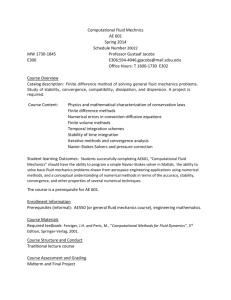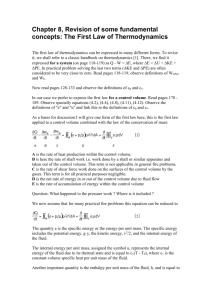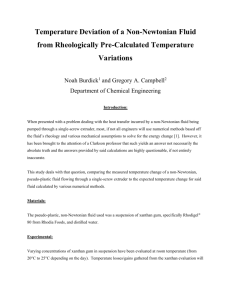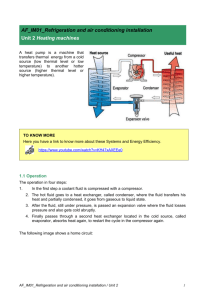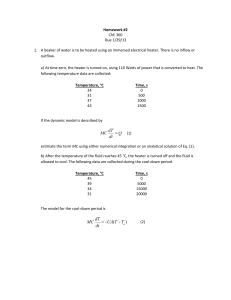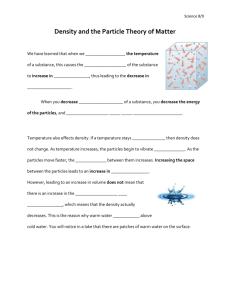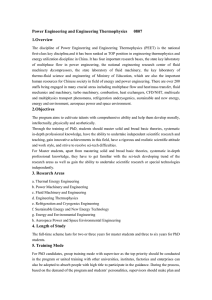Department of Fluid and Heat Engineering
advertisement
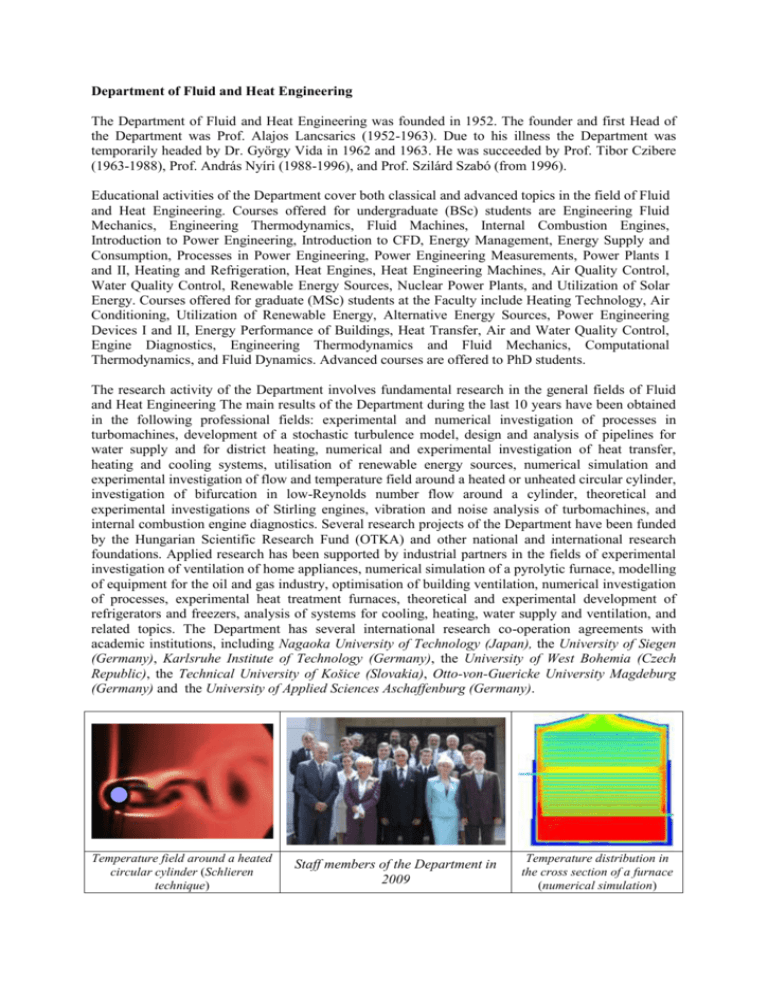
Department of Fluid and Heat Engineering The Department of Fluid and Heat Engineering was founded in 1952. The founder and first Head of the Department was Prof. Alajos Lancsarics (1952-1963). Due to his illness the Department was temporarily headed by Dr. György Vida in 1962 and 1963. He was succeeded by Prof. Tibor Czibere (1963-1988), Prof. András Nyíri (1988-1996), and Prof. Szilárd Szabó (from 1996). Educational activities of the Department cover both classical and advanced topics in the field of Fluid and Heat Engineering. Courses offered for undergraduate (BSc) students are Engineering Fluid Mechanics, Engineering Thermodynamics, Fluid Machines, Internal Combustion Engines, Introduction to Power Engineering, Introduction to CFD, Energy Management, Energy Supply and Consumption, Processes in Power Engineering, Power Engineering Measurements, Power Plants I and II, Heating and Refrigeration, Heat Engines, Heat Engineering Machines, Air Quality Control, Water Quality Control, Renewable Energy Sources, Nuclear Power Plants, and Utilization of Solar Energy. Courses offered for graduate (MSc) students at the Faculty include Heating Technology, Air Conditioning, Utilization of Renewable Energy, Alternative Energy Sources, Power Engineering Devices I and II, Energy Performance of Buildings, Heat Transfer, Air and Water Quality Control, Engine Diagnostics, Engineering Thermodynamics and Fluid Mechanics, Computational Thermodynamics, and Fluid Dynamics. Advanced courses are offered to PhD students. The research activity of the Department involves fundamental research in the general fields of Fluid and Heat Engineering The main results of the Department during the last 10 years have been obtained in the following professional fields: experimental and numerical investigation of processes in turbomachines, development of a stochastic turbulence model, design and analysis of pipelines for water supply and for district heating, numerical and experimental investigation of heat transfer, heating and cooling systems, utilisation of renewable energy sources, numerical simulation and experimental investigation of flow and temperature field around a heated or unheated circular cylinder, investigation of bifurcation in low-Reynolds number flow around a cylinder, theoretical and experimental investigations of Stirling engines, vibration and noise analysis of turbomachines, and internal combustion engine diagnostics. Several research projects of the Department have been funded by the Hungarian Scientific Research Fund (OTKA) and other national and international research foundations. Applied research has been supported by industrial partners in the fields of experimental investigation of ventilation of home appliances, numerical simulation of a pyrolytic furnace, modelling of equipment for the oil and gas industry, optimisation of building ventilation, numerical investigation of processes, experimental heat treatment furnaces, theoretical and experimental development of refrigerators and freezers, analysis of systems for cooling, heating, water supply and ventilation, and related topics. The Department has several international research co-operation agreements with academic institutions, including Nagaoka University of Technology (Japan), the University of Siegen (Germany), Karlsruhe Institute of Technology (Germany), the University of West Bohemia (Czech Republic), the Technical University of Košice (Slovakia), Otto-von-Guericke University Magdeburg (Germany) and the University of Applied Sciences Aschaffenburg (Germany). Temperature field around a heated circular cylinder (Schlieren technique) Staff members of the Department in 2009 Temperature distribution in the cross section of a furnace (numerical simulation)
